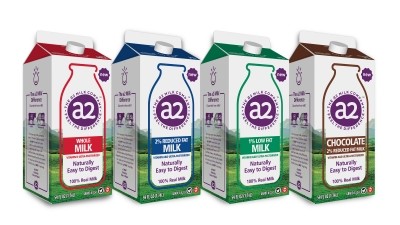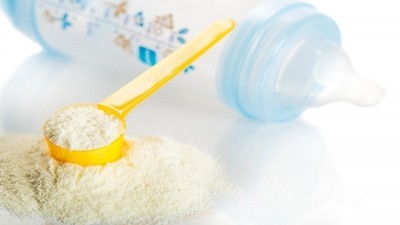Daily dairy: Could consuming milk and yogurt reduce osteoporosis risk in post-menopausal women?

Using prospective cohort data, researchers at Gachon University, Inje University and Korea Food Research Institute sought to identify the impact of milk, yogurt, and other dairy products on the incidence of osteoporosis in post-menopausal South Korean women.
Milk and menopause
They recruited 1,573 participants aged 40 to 69, from both rural and urban areas of the country, for a baseline examination of a community-based cohort study.
Using a validated semi-quantitative food frequency questionnaire (SQFFQ), the researchers assessed the participants' intakes of milk, yogurt, and other dairy products.
They also measured the speed of sound (SOS) at the radius and tibia using a quantitative ultrasound device, with osteoporosis defined by the WHO criteria of a T-score equal to or less than -2.5.
They then conducted a four-year follow-up study, during which they noted that the cumulative incidence of osteoporosis in the radius was 18.4% (273 cases), and 33.6% (407 cases) in the tibia.
After adjusting for potential confounders, participants with a higher frequency of dairy product intake displayed a lowered risk of radius osteoporosis than non-consumers. Similarly, a high frequency of milk and yogurt consumption — more than five to six times a week— had a protective effect against the risk of radius osteoporosis.
However, when it came to tibia osteoporosis, the consumption of dairy products was not found to have any significant impact. Despite this, the SOS value of the tibia was still higher among the participants who had the highest frequency of dairy consumption.
This was consistent with a previous study that had reported the positive effects of dairy protein intake on the distal radius and tibia.
The researchers behind the current study therefore recommended that in order to "obtain a significant osteoporosis risk of the tibia, more subjects (and) a longer follow-up period, with higher dairy intake levels as compared with this study, are needed".
Strengths, weaknesses and conclusions
The researchers wrote that one of the study's strengths was its focus on examining the causal relationship between dairy product intake and the risk of osteoporosis incidence using prospective cohort data.
Additionally, the milk, yogurt and dairy product consumption was estimated using a validated SQFFQ, which collected data on the participants' dietary consumption for over a year and as such, better reflected long-term dietary effects than a 24-hour recall method would have.
However, the study's four-year follow-up period was considered relatively short, as bone characteristics could not be accurately measured until another follow-up study.
In conclusion, the researchers wrote: "The present findings suggest that daily intake of dairy products may potentially prevent the risk of radius osteoporosis in Korean post-menopausal women.
"Thus, it is necessary to propose a practical guideline to increase the consumption of milk and dairy products to suppress the osteoporosis risk in postmenopausal women."
Source: Nutrition Research and Practice
https://doi.org/10.4162/nrp.2018.12.5.436
"High dairy products intake reduces osteoporosis risk in Korean postmenopausal women: A 4 year follow-up study"
Authors: Seon-Joo Park, et al.



















